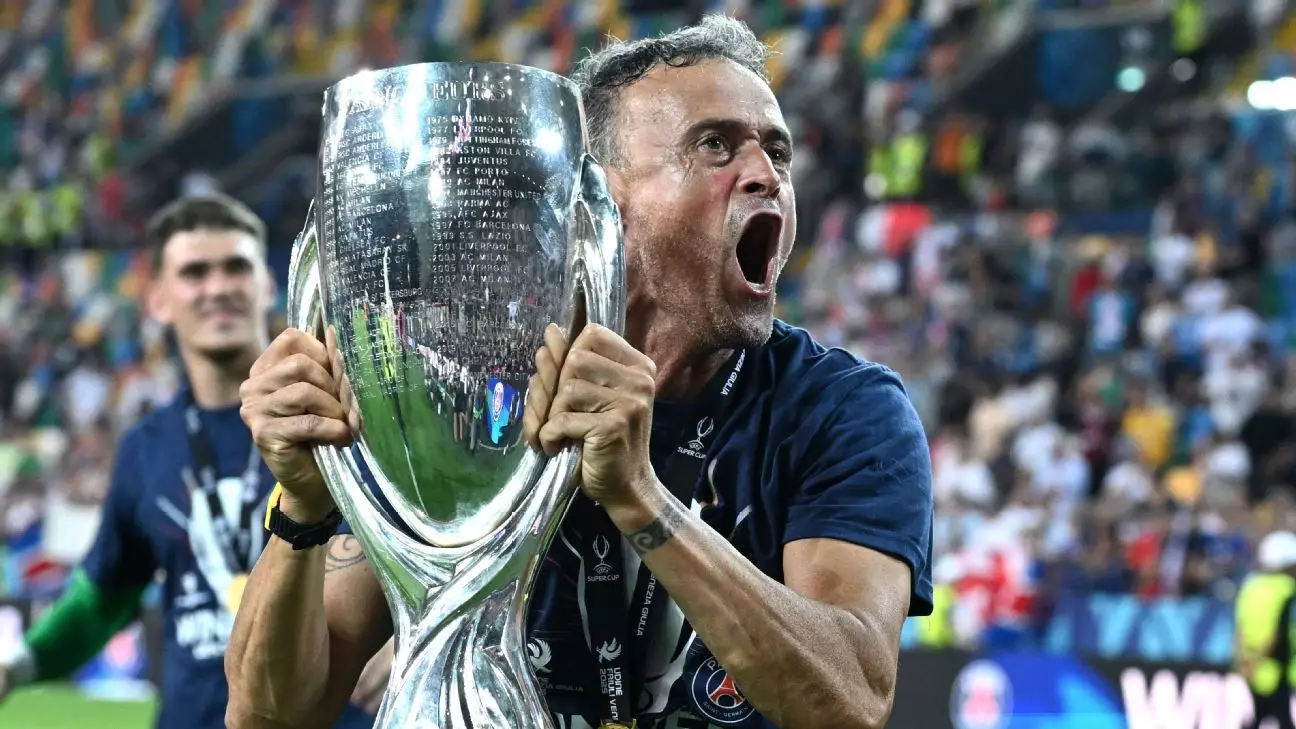A closer look at Paris Saint-Germain’s recent victory reveals a story far more compelling than the surface-level statistics indicate. The match, branded as a showcase for elite European football, was transformed into a dramatic testament to resilience and mental fortitude. Despite being outclassed in the first 80 minutes—culminating in Tottenham Hotspur’s commanding 2-0 lead—PSG’s ability to mobilize an improbable comeback challenges traditional narratives that equate success solely with dominance or talent. The team’s persistent effort in the face of adversity highlights a core truth about high-level sports: perseverance can defy expectations, and sometimes resilience trumps skill when it matters most.
The narrative isn’t just about the final score or dramatic penalties; it’s about the internal fight within a squad that refused to capitulate. PSG’s late surge, driven by sheer willpower from Lee Kang-in and Gonçalo Ramos, underscores a vital lesson—standing firm under pressure can change the course of any contest. This resilience isn’t accidental but rooted in a culture that values mental toughness and the unwavering belief that victory is possible, even when circumstances seem stacked against you.
The Implications of Fitness and Readiness
Luis Enrique’s candid remarks on fitness levels add a fascinating layer to the analysis. The coach noted that PSG, having just resumed training after their deep run in the Club World Cup, was at a disadvantage compared to Tottenham, who had been preparing for six weeks. This underscores a crucial, often overlooked reality in competitive sports: physical readiness isn’t just a background factor—it can ultimately determine the outcome of high-stakes matches.
What stands out here isn’t merely the physical disparity but the psychological resilience of PSG’s players to fight despite it. Enrique’s acknowledgment of their “luck” in the final minutes torpedoes the myth that talent alone guarantees victory. Instead, it accentuates that preparation—both physical and mental—sets the stage for extraordinary performances. PSG’s late push, despite their fatigue, exemplifies a willingness to confront weakness head-on and refuse to accept defeat as inevitable. The team’s capacity to rally, even with limited training, illustrates a powerful mindset where grit and determination can overshadow raw condition.
The Emergence of New Leadership and the Significance of Character
The match also offered a stage for new figures to emerge. Lucas Chevalier, a goalkeeper who recently stepped into the spotlight, demonstrated the importance of personality and mental strength—qualities that go beyond technical skill. Despite conceding two goals, Chevalier’s crucial save in the penalties exemplifies a player who embodies the fight, refusing to let setbacks define him.
This episode challenges conventional emphasis on experience or reputation, such as the celebrated Donnarumma, who had not traveled for the match amid rumors of departure. Chevalier’s performance indicates that character and mindset often weigh heavier than accolades in moments of crisis. It raises the notion that true leadership sometimes manifests not just through commanding presence but through resilience under pressure.
Furthermore, PSG’s team united in support and faith, exemplified by Vitinha’s comment on teamwork—helping each other up after errors—highlighting that collective mental strength is often the deciding factor in winning against the odds. The match became a vivid training ground for identifying what it takes to thrive in elite football: passion, resilience, and the unshakeable belief that no defeat is final until the last whistle.
Challenging Conventional Narratives of Superiority
This tale defies the tidy narrative that a team’s dominance in possession, training, or star power alone guarantees victory. While Tottenham appeared more prepared physically and tactically for most of the game, PSG’s unwavering spirit transformed the final moments into a display of resilience that transcended skills on paper. This contest reminds us that in sports—and life—success often hinges on the mental game just as much as the physical.
Luis Enrique’s honesty about PSG “not deserving” to win initially may come across as humility, but it’s also a declaration of values—those who persist, adapt, and refuse to yield ultimately rewrite the story. It’s a reminder that true champions aren’t necessarily those who dominate early but those who refuse to accept defeat and capitalize on fleeting moments of hope.
This game, with its emotional twists and mental tests, affirms that resilience is a virtue that can redefine outcomes. In a broader context, it challenges teams, coaches, and fans alike to rethink what it means to be victorious. Success isn’t just about talent and preparation but about the unyielding resolve to push through setbacks and emerge stronger—a lesson that resonates far beyond the pitch.


Leave a Reply